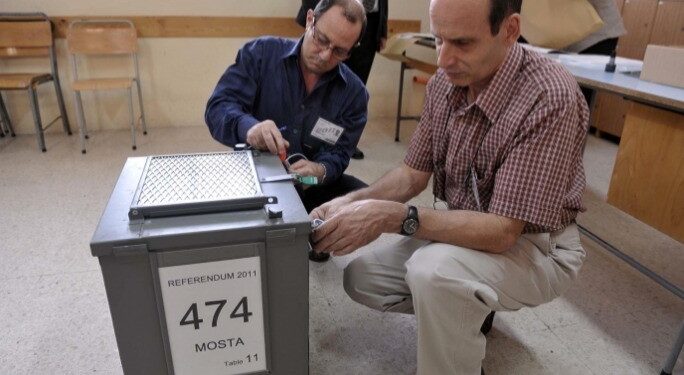In May 2011, Malta made history by becoming the last country in the European Union to legalise divorce, following a closely fought referendum that divided the deeply Catholic nation along traditional lines.
The referendum, held on 28 May 2011, saw 53.4% of voters support the introduction of divorce legislation, whilst 46.6% opposed it. The result marked a seismic shift in Maltese society, where the Catholic Church had wielded considerable influence over family law for centuries.
Malta’s unique position as the only EU member state without divorce provisions had made it something of an anomaly in modern Europe. Before the referendum, separated couples had no legal means to remarry, forcing many to seek expensive annulments through Church tribunals or remain in legal limbo indefinitely.
The campaign leading up to the vote was particularly intense, with both sides mobilising significant resources. The ‘Yes’ campaign, led by lawyer Deborah Schembri and supported by various civil rights groups, argued that divorce was a basic human right that would provide relief to couples trapped in failed marriages. They emphasised that the proposed legislation included strict conditions: couples would need to be separated for at least four years out of the previous five, with provisions for maintenance and child custody clearly defined.
The ‘No’ campaign, strongly backed by the Catholic Church and conservative political figures, warned that divorce would undermine the sanctity of marriage and potentially harm children. Church leaders argued that existing annulment procedures were sufficient and that introducing divorce would fundamentally alter Malta’s Catholic identity.
The debate exposed deep generational and geographical divides within Malta. Younger, urban voters generally favoured divorce, whilst older, rural communities tended to oppose it. The island of Gozo, traditionally more conservative than mainland Malta, voted against divorce by a significant margin.
Political parties initially attempted to remain neutral, with both the ruling Nationalist Party and opposition Labour Party allowing their members to campaign freely on either side. However, as the campaign intensified, it became clear that the issue transcended traditional party lines.
The Church’s influence proved less decisive than many had expected. Despite pastoral letters read from pulpits and public statements from Archbishop Paul Cremona urging voters to reject divorce, the ecclesiastical establishment could not sway the majority of Maltese citizens.
International observers noted the referendum’s significance beyond Malta’s shores. The result was seen as indicative of changing attitudes towards traditional Catholic teachings across Europe, even in historically devout nations.
Following the referendum victory, the Maltese Parliament moved swiftly to enact the divorce legislation. The new law, which came into effect in October 2011, established a civil divorce process whilst maintaining the Church’s right to refuse religious recognition of remarriage.
The 2011 divorce referendum represented more than a simple legal change; it symbolised Malta’s evolution from an isolated, tradition-bound society into a modern European democracy willing to challenge longstanding religious orthodoxies in favour of individual rights and social progress.
newshub finance


Recent Comments